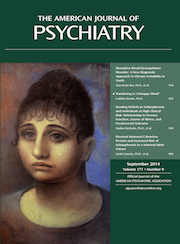Iraq is once again in the throes of sectarian violence. Militants from the Sunni extremist group, the Islamic State in Iraq and the Levant (ISIL), managed to undo over a decade of American “nation building” in an offensive that swept aside Iraq’s fledgling army and refueled lingering ethnic grievances. The growing number of corpses in Baghdad’s morgue, bearing signs of torture and summary execution, is a harbinger of the kind of sectarian violence that threatened to tear Iraq apart between 2005 and 2008 (
1). The White House has sought to reverse Iraq’s inexorable march to civil war by taking a two-track approach: prodding its insular Shia leadership to be more inclusive and setting the military groundwork to halt further gains by radical Sunni militants (
2). This “top-down” diplomacy that favors political and military interventions will not be enough to stop the violence. American- and European-funded stabilization efforts in Iraq during the past decade taught us that healing sectarian rifts depends on “bottom-up” community-level psychosocial interventions (
3).
The Iraq Mental Health Initiative (IMHI), funded by the U.S. Department of State, sets an important precedent for the efficacy of psychiatrist-led psychosocial interventions in sectarian conflicts. Prior to the program’s inauguration in 2008, Iraq was in the grips of unprecedented sectarian strife that pitted a newly politically empowered Shia majority against a Sunni minority that had dominated the country’s political process. Iraq’s Shia-Sunni fighting at the time was similar to the present conflict because of its sectarian divide and civilian toll. Thousands of noncombatants were dying monthly in sectarian cleansings, and thousands more either were displaced within Iraq or became refugees in neighboring countries. By all accounts, Iraq was mired in a civil war from which few believed it would recover (
4). Despite the grim conditions on the ground, the U.S. embassy in Baghdad funded IMHI as part of its Targeted Development Program for Iraq in 2008 with the explicit task of improving mental health for Iraqis across geographic and sectarian boundaries and the implicit mission of advancing communal reconciliation (
5). Over its 2-year duration between 2008 and 2010, the program trained thousands of Iraqi general practitioners, health care workers, and teachers to identify priority psychiatric conditions and to apply evidence-based treatments. Thanks to community-driven advocacy and information campaigns, the program also helped reduce the stigma and discrimination traditionally directed toward individuals with mental illness.
IMHI’s emphasis on diversity and collaboration across sectarian divides was instrumental in bridging differences and fostering understanding among its beneficiaries as well as the Iraqis involved in implementing it. The program engaged adversaries, including clerics and tribal leaders, across Iraq’s religious and ethnic spectrum, together with physicians, to address mental illness. By breaking the barriers of mistrust, IMHI was successful in building alliances that not only enhanced the culture of psychiatric practice in Iraq but also allowed a modus of civil discourse that contributed to the reduction of violence that was observed by the end of the decade. Israelis and Palestinians made similar efforts with each other in the peaceful era before conflicts recurred in 2000, as did the Albanians and Serbs following the Kosovo conflict of the late 1990s. Unfortunately, IMHI’s activities were halted in 2010 as the United States prepared for its withdrawal from Iraq.
While U.S. congressional leaders have been pushing for a military solution to the current crisis, it is imperative to remember the hard-learned lessons of the recent past (
6). The lack of community reconciliation in the multimillion-dollar package of humanitarian emergency aid for Iraq’s displaced population has already put our national security at risk and threatens to prolong the cycle of violence in the region. The United Nations, for example, recently reported that a number of refugee children have been recruited to serve as soldiers or even suicide bombers by belligerents (
7,
8). These refugees are not only victims and perpetuators of violence, they also carry the seeds of sectarian strife into the future, as well as posttraumatic stress disorder and anxiety disorders (
9). Resuming a psychosocial program like IMHI could immediately engage the thousands who have fled ISIL-controlled territory for Kurdish safe zones in northern Iraq.
Our past experience in Iraq has taught us that success on the battlefield does not ensure a lasting peace. Consequently, if left unchecked, the communal divides will likely persist long after the victory of one side over the other and will be a source of instability that can threaten our national security. Only a robust humanitarian plan for reconciliation and conflict prevention across sectarian boundaries can safeguard the hope for a violence-free and contiguous Iraq in the future.
The role of psychiatrists in rebuilding fractured communities is significant. What they should do to ensure that the contribution of psychiatry and other bridge-building efforts occurs is more uncertain, particularly once conflict erupts. Advocacy with the federal government and Congress rightly focuses primarily on ensuring care for the U.S. population. However, the benefits of investing in mental health-driven stabilization programs abroad can have tangible domestic benefits by reducing the currents of radicalization that know no boundaries in an age of global terrorism. Our congressional and federal leaders need to be reminded of this and encouraged to invest in international efforts through the State Department and the U.S. Agency for International Development. Outreach to our colleagues in countries where conflicts are occurring is helpful as well. Our bridge to them may help them become part of a solution that ensures the growth of peace and security in their country and in ours.

